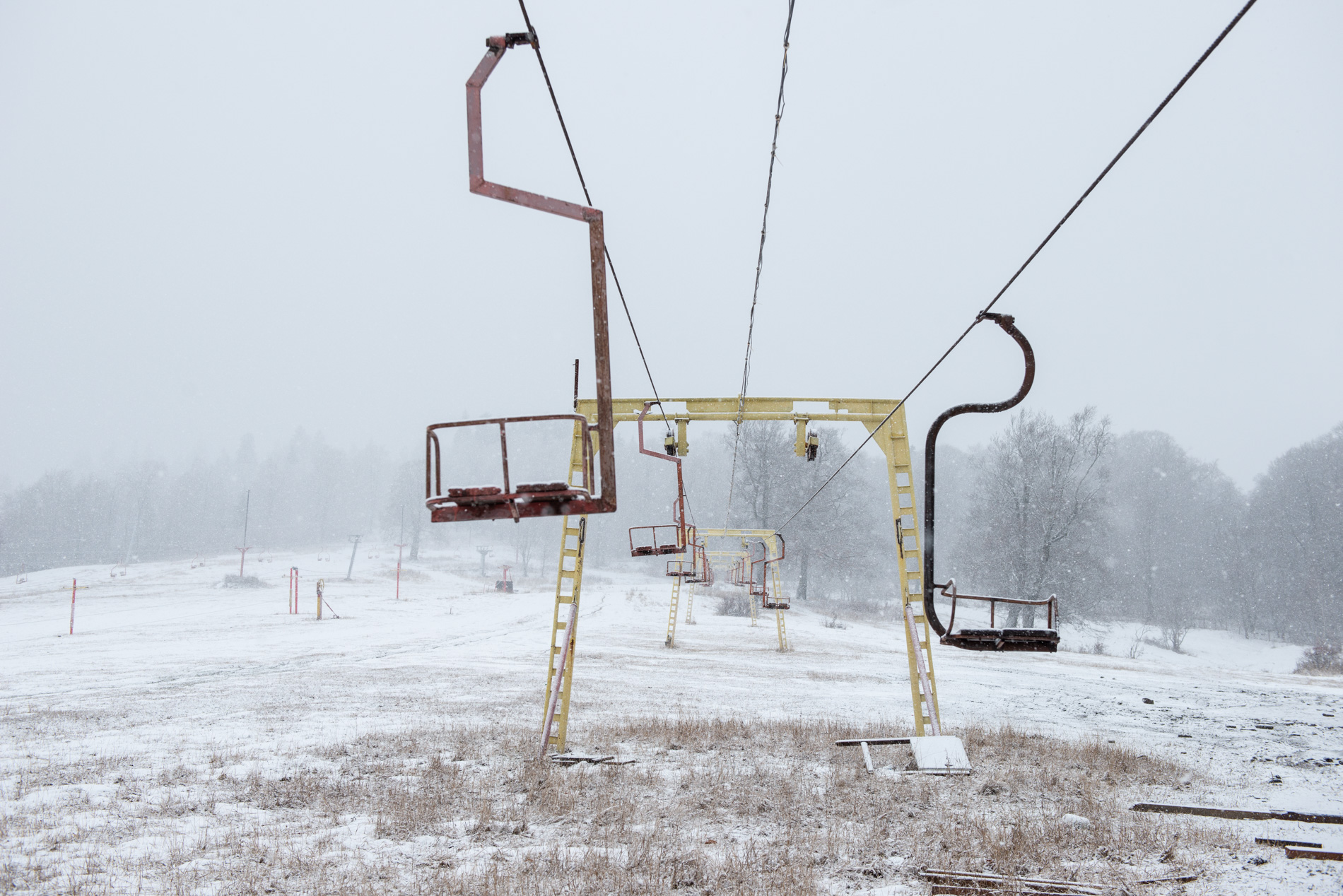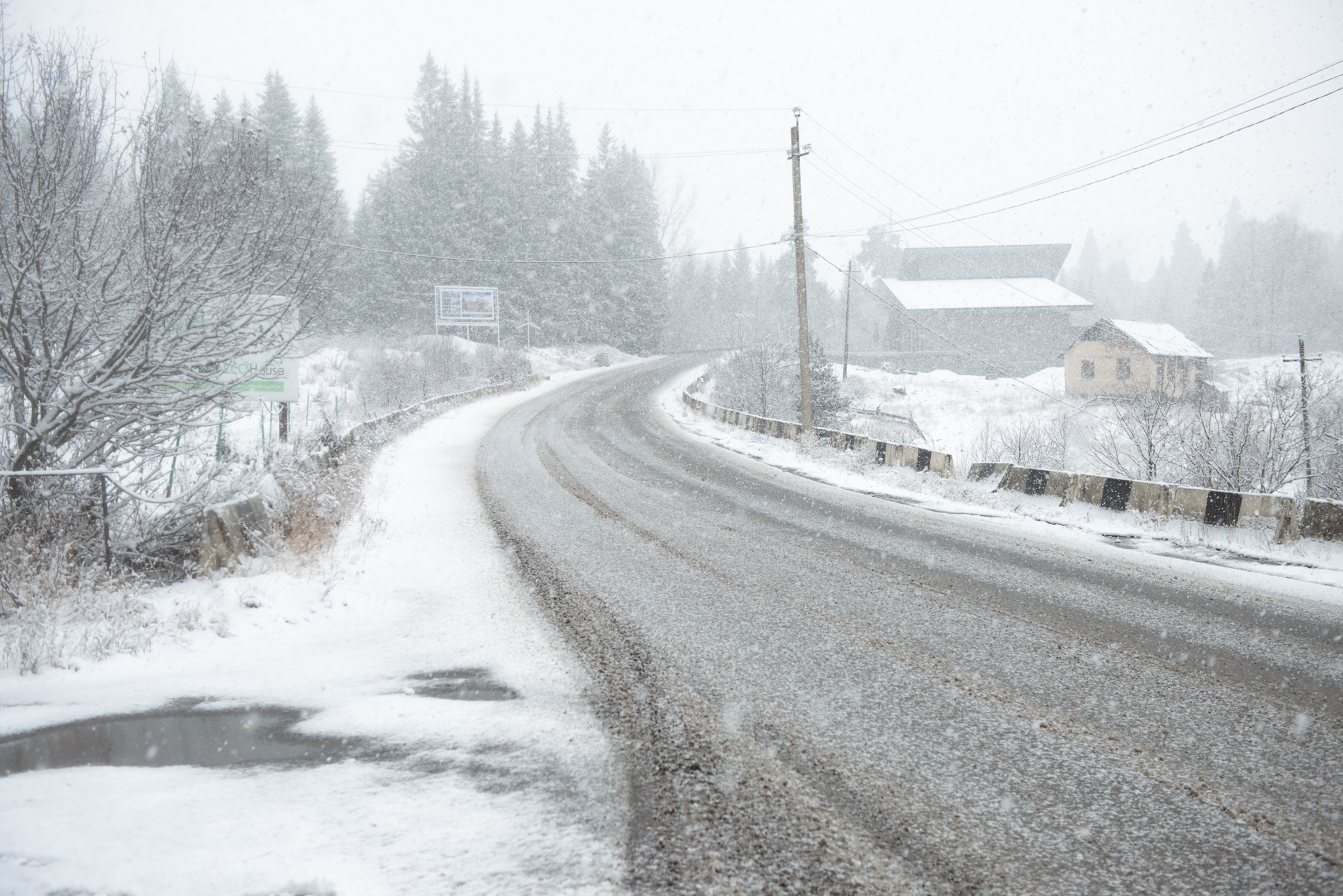
In Pictures | Bakuriani’s corona freeze
The COVID-19 pandemic has brought life in Georgia’s most popular ski resort town to a painful standstill.
In Pictures | Bakuriani’s corona freeze
 19 January 2021
19 January 2021

With the pandemic, life in Bakuriani has come to a standstill. Now, residents of the popular ski resort town fear the pandemic will deal a fatal economic blow to their livelihoods.
Since the COVID-19 pandemic began Bakuriani has fallen under a deep economic freeze. Ski lifts have stood still for months, and since the latest lockdown, all hotels are closed until January at the very least.
For a ski-resort town like Bakuriani, the lockdown means a cancellation of the most profitable season and local residents, from hotel owners to street vendors, are feeling the pinch.
Asmat Melikidze, an administrator of a cottage rental company for the last three years, told OC Media that Bakuriani’s tourist season shut down affects not only Bakuriani but the wider region.

‘People were coming from Borjomi, Khashuri, and even Tbilisi to work’, she said.
Asmat managed eight cottages, that, in the average season produced not less than ₾50,000 ($15,000). The season usually began in late December and carried on through until the Spring, but January was always the most profitable month when the holiday-goers went skiing or just for some fresh mountain air.
‘The summer season was very poor this year, not even a quarter of what we usually do, so we had hopes that in winter we’d recover’, he lamented. ‘It’s a horrible situation now, we don’t have any other source of income’.
‘If there’s going to be any protest about this, I would definitely be one of the first voices. But right now too few people are willing to speak up, everyone is still waiting for the restrictions to ease, and that drives me crazy.’
At the moment, the only hotels still operating are those used to house COVID-19 patients.



The loss of income is particularly acute as most Bakuriani businesses hold sizeable loans. ‘The only option is to freeze loans without further percentage’, Guesthouse owner Irina Qumaritashvili told OC Media. ‘We can survive the virus, but we won’t survive the banks.’
‘Even with domestic tourism, it’s hard to survive. The summer was only enough to make it through the rest of the season, and we won’t survive on ₾300 [a $92 monthly support payment].’
One of the highest expenses is the utilities — the strict climate of Bakuriani puts the residents way beyond government subsidies for heating bills.
Irina is often visited by the health inspection, to make sure she is not illegally operating. She said that her usual guests, many of whom have already had and recovered from COVID-19, call her almost daily to ask if they can stay, but she has to refuse them.
Bakuriani’s scarce visitors at the moment are people who own flats in mixed-use apartment hotels — large complexes that both rented flats and sold them to private owners.

Giorgi Maisuradze, the manager of the half-empty Didveli residence, told OC Media that New Year’s Eve reservations usually started as early mid-November. ‘Right now I have a minimal staff to run administrative tasks for residents who already paid for their flats, so not only do we not make a profit, but also suffer a loss. The residents who have mortgages struggle to pay too, requesting more and more time.’
The company has seven complexes where around 60 people were employed before the pandemic. The company also owns several skiing tracks and restaurants, all of which have been shuttered for months.

‘All these people are out of a job now’, Maisuradze said. ‘We don’t want to leave them with nothing, and as with the previous lockdown, now too, we have passed on a list of our employees to the ministry for social aid.’
Giorgi also points out that the business cannot develop further, as banks refuse any further loans. ‘They say that we’re a mountain resort and we won’t be able to cover it. We are totally helpless right now — we are running on momentum, alone’.

Naira Kurmashvili has been a street vendor selling preserves and other foodstuffs in Bakuriani for the last thirty years, and she can’t recall a winter worse than the current one. ‘Everything here stands on the winter season. People don’t accumulate money, they take a loan in summer and pay it off by working during the winter holidays’.
Naira has to pay ₾2,000 ($610) to the bank in January but has no idea where to get the money from. She is also afraid that postponing repayment of the loan will increase what she must pay in monthly interest.
![Naira Kurmashvili has been selling Bakuriani delicacies for the last thirty years. One jar costs ₾10 [$3], and her income depends on how many of those she’ll sell. Photo: Tamuna Chkareuli/OC Media.](https://ocmedianew.vecto.digital/wp-content/uploads/2021/01/bakuriani-9-19-jan-2021.jpg)
Her two sons, who are ski instructors and would otherwise help her during moments of financial distress, have also lost their jobs.
Bado Naskidashvili, 72, a veteran ski trainer, told OC Media that skiing instructors usually work with a devoted group of customers who pay an average of ₾40–₾50 ($12–$15) by the hour, depending on the difficulty of the track. Now Bado works as a janitor at a local park, receiving and receives ₾400 per month. Other instructors have resorted to renting out sledges for children to try and make enough to survive.



A number of Bakuriani residents have told OC Media that they hope the restrictions will ease after 24 December, when the current country-wide lockdown is slated to lift. However, despite shops being allowed to open throughout the country alongside the lifting of other restrictions, mountain resorts are to still remain closed indefinitely.

Mariam Javakhishvili, a spokesperson for Georgia’s Ministry of Economy and Sustainable Development told OC Media that businesses involved in the hospitality industry, including hotels and restaurants, as well as tour operators and tourist agencies at all mountain resorts will not have to pay income taxes for November and December delayed until 1 July 2021. Additionally, the Ministry, together with the ‘Produce in Georgia’ programme will subsidise loans for restaurants for six months and loans for hotels for 12 months.
‘These measures will help companies keep their staff’, Javakhishvili said. ‘The tax delay will include more than 100 companies and the total amount is half a million lari ($150,000)’.
There are a number of general exemptions for the tourism sector too. The property tax has been lifted completely for restaurants and hotels, as well a select number of other large businesses. For six months from 1 December, all salaries under ₾1,500 will be taxed only on an amount above ₾750.
How these changes will help self-employed individuals like sports instructors or vendors with loans payments to make, remains unclear.

This article was prepared with support from the Friedrich-Ebert-Stiftung (FES) Regional Office in the South Caucasus. All opinions expressed are the author’s alone, and do not necessarily reflect the views of FES.






